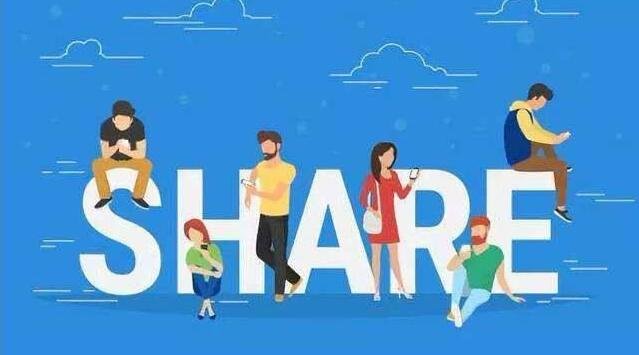Shared economies led by Uber, Lyft and Irbnb have not played the role they deserve for their employees. With wages stagnating in the United States and around the world, these part-time jobs lack pensions, health care and other benefits, and there is little comfort for those trying to make a living from these applications. All this happened when the cliche "the richer the rich, the poorer the poor" came into being in the form of widening income gap.

Although the latest technology darling block chain is unlikely to jump in and rescue us from the world's most complex economic problem, it can be used to lay the foundation for a new shared economy and give people more opportunities to create wealth.
A prosperous economy is good for everyone.
Whether you belong to 0.1% (the rich) or 99.9% (the average person), we should support a healthy economy. Looking at Venezuela's current situation, we can see the potential consequences of economic problems, including massive unemployment, health and refugee crises. The problem is that recent global economic trends are mixed. Although unemployment has declined in many developed countries, wage growth has lagged behind. According to Pew Research Center, "Today's real average wage level... It's about the same purchasing power as before 40 sprays.
Slow wage growth is only one reason for rising income inequality. One of the biggest factors contributing to the widening gap between the rich and the poor is that the rich have the means to create more wealth. According to the Seven Pillars of Global Finance and Ethics, this process of wealth concentration creates a vicious circle in which "children born in wealthy families have economic advantages because wealth may inherit and educate, which may increase their chances of earning higher incomes than their peers."
Break the cycle
Although the current shared economy is possible as a result of the mobile application revolution, its ability to expand income choices for the general public is disappointing, but block chain technology may lead to a shared economy 2.0 with ownership as the center, not contract workers as the core. This may first remove concerns that automation will leave millions unemployed in just a few years. In view of the rapid development of self driving cars, one of the first affected groups may be traffic, and drivers of Uber and Lyft will not be spared.
The shared economy driven by the decentralized system will allow individuals with autopilot to make money with this asset, but the real opportunity to create wealth lies in the ability of block chain technology to open the door and allow investors to have some of the best performing assets that can be owned by individuals with only high net worth. According to the Knight Frank Luxury Asset Index, the best performing assets in 10 years were classic cars, followed by currency, wine and jewelry.
据《华尔街日报》报道,2018年最好的投资是葡萄酒、艺术品、经典汽车和高端钻石——对你的日常生活而言,这是不太可能的投资,然而,中等收入个人投资这些资产的可能性可以通过部分所有权来实现。
Decentralized Ownership Promotes Democratization of Investment in High Performance Assets
Historically, high-performance assets, like classic cars, wines and jewelry, can only buy the entire entity. However, the ability of block chain technology to preserve security and digital records, together with the control supported by tokenization and intelligent contracts, makes it possible for strangers or untrusted entities to sign contract ownership agreements on the same asset. Imagine if David Hockney's painting Portrait of an Artist (a pool with two characters) were sold for $9.3 million, could it be owned by hundreds or even thousands of people? Ownership could be represented by digital symbols (essentially receipts), which could be freely traded or exchanged by the holders.
The real challenge is to connect the digital world with the real world. Where will the assets be stored? What if they are stolen or damaged? How can decisions related to asset sales be managed and implemented? What if maintenance or special maintenance is required? Developers who support a platform that partially owns real assets will need to address these issues. Block chain intelligent contracts can help them make decisions. For example, we can develop a smart contract that votes annually between token holders to decide whether to sell or hold shared assets, with voting rights proportional to the number of tokens held.
However, due to the lack of testing and experimentation, many environmental and human factors will inevitably be challenging. Maybe big data and artificial intelligence can speed up the learning curve, but the lawyer industry is unlikely to lose jobs soon.
An economy for all
Although the work of the block chain project team is really difficult, we should all encourage further research, development and innovation. After all, if the sponsors have the ability to come up with solutions that work for everyone, then we will be full of expectations for the economic 2.0 they advocate.